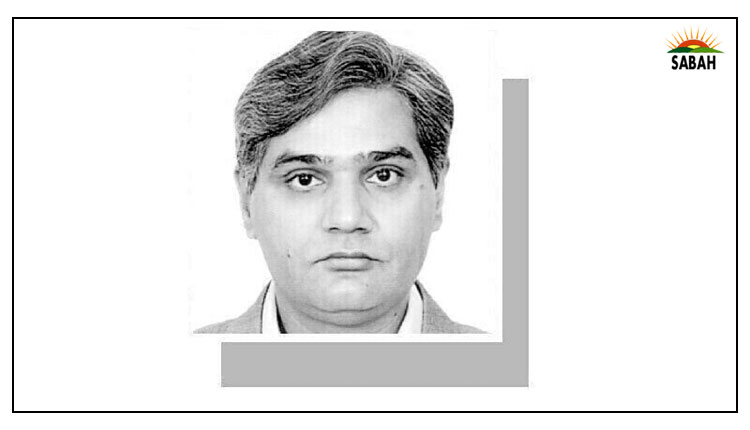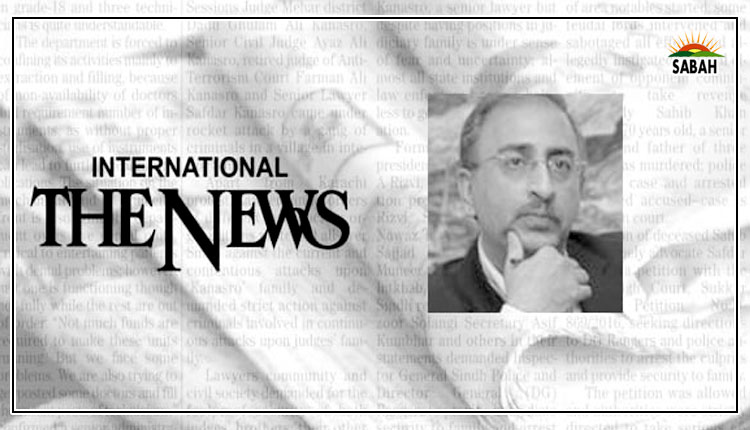Need for a digital authority to combat social media abuse… Durdana Najam
Social media has revolutionised communication, but the anonymity and immediacy it offers can have a dark side. Pakistan, like many nations, is grappling with the rise of online abuse, hate speech and the erosion of fundamental rights on social media platforms (SMPs). To combat these issues, the government is exploring the creation of a Digital Rights Protection Authority (DRPA) and pursuing digital sovereignty to create a safer online environment.
People the world over face a multitude of online threats. Personal data is easily collected and shared without consent, exposing individuals to cybercrimes like identity theft. Bullying, stalking and hate speech are rampant, causing emotional and reputational damage, and even physical harm.
False accusations and hate speech can spread rapidly online, causing significant emotional distress and damaging reputations. Current legal frameworks offer limited protection, and the lack of a Right to be Forgotten makes it difficult for victims to erase their online footprint. Clearer laws and international cooperation are essential to hold online abusers accountable and empower victims. Indias model of government oversight and takedown orders for harmful content offers a potential starting point.
Social media platforms often collect and share personal data without consent, compromising user privacy and leaving them vulnerable to cybercrime. Corporations exploit this data for profit, often with little transparency or compensation. A dedicated Digital Rights Protection Authority can safeguard user rights, enforce existing regulations and develop new policies to enhance online security. Collaboration with social media companies to implement tools and policies aimed at preventing and addressing online harassment is crucial.
Pakistani women face a particularly hostile online environment. Creating a safe online environment is crucial for fostering gender equality and ensuring womens active participation in digital spaces. The proposed Authority can specifically monitor and address cases of online harassment targeting women.
The lack of regulations around intellectual property theft and the unchecked spread of malware threaten user security and stifle innovation. Laws addressing theft and misuse of intellectual property on social media platforms are needed. Additionally, measures to tackle the spread of malware and online waste are essential for a safer digital environment.
Social media platforms become breeding grounds for hate speech and marginalisation of minorities. The blurred line between free speech and hate speech creates a challenging legal landscape. A framework that makes social media companies signatories to agreements overseen by the government is crucial for ensuring accountability and upholding national interests. This can help establish clearer boundaries between free speech and hate speech.
Social media discussions often devolve into biased arguments and political extremism, undermining civil discourse and national unity. Collaborative efforts aimed at achieving Digital Sovereignty for Pakistan are needed. This can involve tailored measures to address online harassment and promote responsible use of social media for constructive discussions.
The spread of misinformation and sensationalism on social media fuels political unrest and societal divisions. Implementing comprehensive strategies to mitigate the prevalence and impact of online harassment can help safeguard the digital integrity of individuals and institutions. Additionally, promoting media literacy and critical thinking skills is crucial to combat the spread of fake news.
The current legal framework in Pakistan, including the Prevention of Electronic Crimes Act (PECA) 2016, is demonstrably inadequate. PECA attempts to address online threats, but the lack of stringent regulations regarding online defamation weakens its effectiveness. Additionally, Pakistans non-binding relationship with SMP companies allows them to operate with limited accountability. This lack of digital sovereignty undermines the states ability to control the content disseminated on these platforms.
Many countries have recognised the importance of robust legal frameworks to govern social media platforms. India, for example, has actively refined its regulations concerning online content, empowering authorities to take down illegal content. Pakistan can learn from these examples by adopting a more proactive approach.
The establishment of a DRPA is seen as a critical step forward. This independent authority would be empowered to monitor social media platforms for online harassment, cyberbullying and hate speech. It would then work with platforms to remove harmful content and hold perpetrators accountable.
Moreover it would enforce existing laws related to online safety and advocate for new policies to enhance user protection. In collaboration with SMPs, a DRPA would encourage them to adopt more robust content moderation practices and user safety mechanisms. In addition to enhancing online safety practices and empowering people to protect their digital rights, the proposed Authority would play a vital role in educating the public about online safety practices.
To ensure responsible conduct of SMPs and safeguard national interests, Pakistan needs digital sovereignty. This can be achieved through a regulatory framework that holds these companies accountable. Agreements overseen by government authorities can ensure this. Additionally, international cooperation is crucial to develop cohesive regulatory approaches that address cross-border online threats.
The creation of a DRPA, coupled with robust legal frameworks and international collaboration, represents a comprehensive response to the challenges posed by the digital age. Its not just about technical solutions, but about fostering a more inclusive, safe and responsible online environment for all Pakistanis. By taking these steps, Pakistan can ensure its citizens can fully embrace the potential of the digital world without fear of abuse or exploitation. The time for action is now. Pakistan must protect its digital space and ensure its future for generations to come.
Courtesy The Express Tribune












